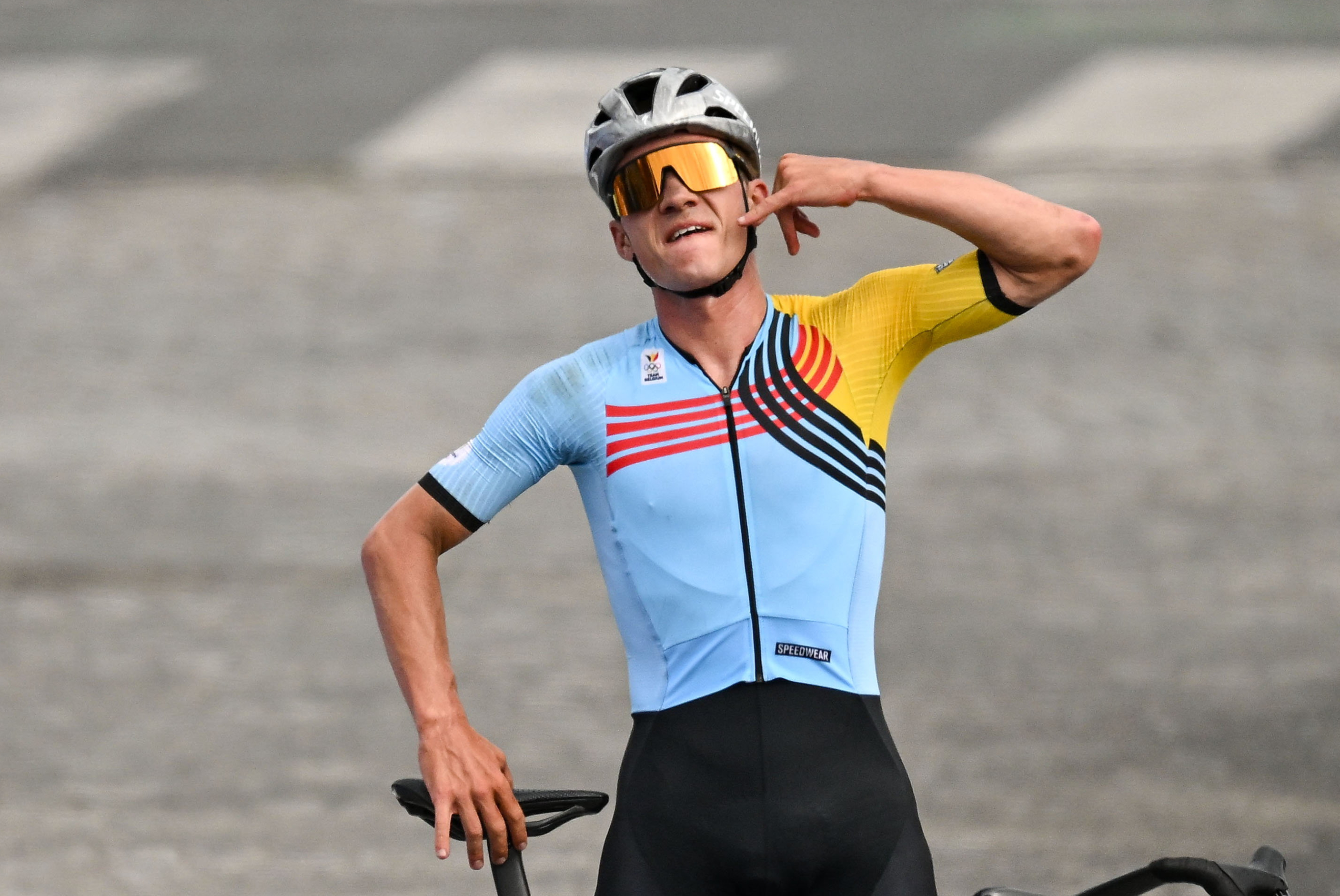It’s an image that will outlive his lifetime. When Remco Evenepoel crossed the finish line of the Paris Olympics road race, having soloed alone to victory, he threw his leg over his bike and stood in the middle of the street. Behind him, the Eiffel Tower loomed, bronze-coloured and adorned with the five Olympic rings.
The moment was iconic, befitting the piece of history it marked. The Belgian’s win made him the first man ever to complete the double at the Olympics, winning both the time trial and the road race. Evenepoel himself understood the significance. He stretched his arms wide in celebration, before lifting his left hand to his ear in a telephone gesture, and slamming it towards the cobbled floor.
It’s a salute the 24-year-old has done since February, when he took his first victory of the season at the Figueira Champions Classic. But what does it mean?
“It’s literally called ‘dialled in’,” Evenepoel explained in his post-race press conference. “I was just settled to try and do my best in the last week. I think it’s something fresh, something new. I’m not the first one to do it, of course, it’s from a tennis player. But I hope you enjoyed it.”
The tennis player in question is American Ben Shelton, who began doing the gesture in 2023 to show he was ‘dialled in’ and ready to compete. Still, there was another American athlete Evenepoel likened himself to in Paris, as he sat with two gold medals laid on the table in front of him.
“I remember the image of Michael Phelps in the past, with all his medals around his neck, and now I feel a bit like him,” the Belgian smiled. “The idea of [posing with both of] the medals was not mine, but my wife’s idea, because I left [my time trial gold medal] in Belgium.
“This morning she texted me that she brought the medal with her, just in case, and luckily she did, because now I have a pretty unique picture for my Instagram.”
There was something unique, too, about the bike Evenepoel posed with after the finish line. After suffering a rear wheel puncture with 3km to go, he performed a panicked bike change, one that had him clapping his hands furiously at his mechanic to speed up.
Evenepoel crossed the line on a plain-black spare bike, rather than one specially painted for the Games by bike brand Specialized.
“I was just unlucky to hit a cobble with my back wheel, and the tyre was straightaway flat so I had to change it,” he said. “I think [the bike change] was as smooth as possible. It was maybe an extra spice on the victory,
“Before the incident, the motorbike was right next to me and showed me a sign with 25 seconds of advantage. I think that was incorrect, and that’s why I was a bit stressed. I was expecting Valentin [Madouas] and the group behind to pass me straightaway.”
In reality, Evenepoel’s advantage stood at around a minute, a buffer that gave him an empty road, and an opportunity to savour his achievement. What it gave the sport was a lasting image. It’s a celebration that will be talked about for generations to come.


